Public set to vote on phasing out nuclear power
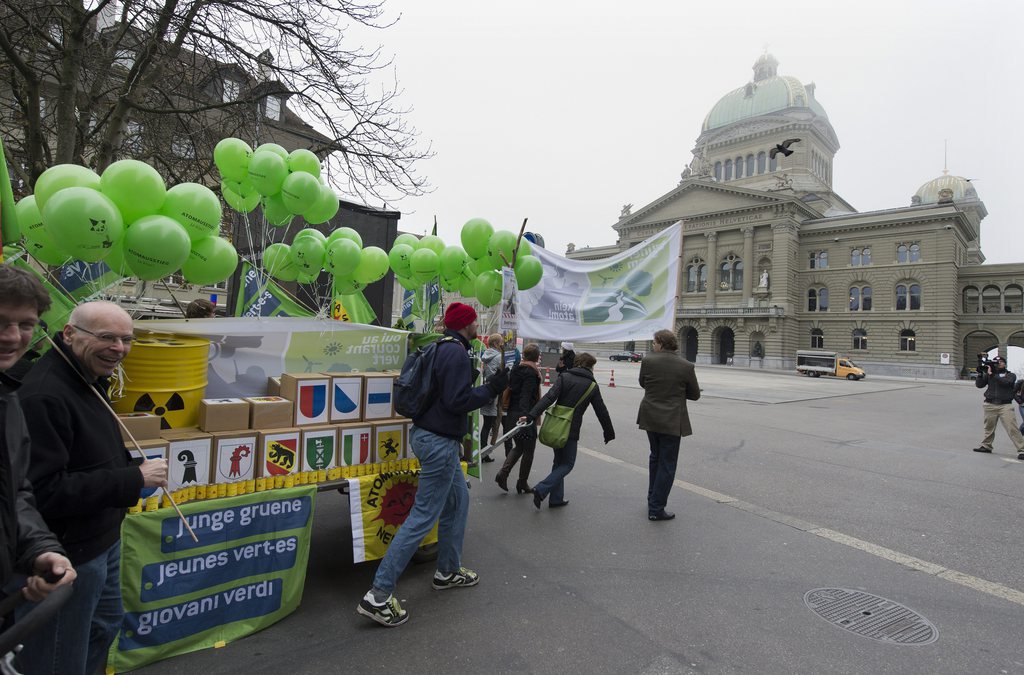
The Green Party has collected 109,000 signatures in support of a people’s initiative that would require caps on the lifetimes of existing nuclear power plants in Switzerland and a ban on the construction of new ones.
The initiative was needed to ensure the transition to the government’s new energy strategy, said Regula Rytz, co-president of the Green Party, before the media in Bern on Thursday.
“The nuclear phase-out should not be delayed any further,” she added.
Rytz described the initiative as a “safety net” providing protection against the “unbelievable risks and subsequent costs” of atomic energy.
Although the cabinet committed in 2011 to a phase-out of nuclear power, it has not set a binding deadline.
“We have one,” said the Green Party’s vice-president, Bastien Girod.
The initiative, if passed by the people in a nationwide vote, would require the closing of Beznau I, Switzerland’s oldest nuclear power plant, within one year of the vote. The lifetimes of the other four plants would be limited to 45 years, meaning that the newest plant, in Leibstadt, would be closed by 2029.
Wind or water?
Greenpeace Switzerland even considered a phase-out by 2025 as realistic. Ninety per cent of nuclear energy could be replaced by water power and imported clean energy by then, said Cécile Bühlmann from the environmental organisation.
Bastien Girod said it would be necessary to strengthen the use of renewable energy and to improve energy efficiency, but added that this was possible, as demonstrated by Germany, which has committed to abandoning nuclear power by 2022.
“With 60 per cent hydropower and the use of storage plants for pumped water, it’s very easy to replace atomic energy,” he said.
Girod also believed expanding wind power from 32 installations to 1,000 was realistic.
Fukushima effect
The Green Party launched the initiative following the catastrophic earthquake and nuclear meltdown in Fukushima, Japan, in March 2011.
People’s initiatives allow citizens to propose modifications to the constitution. Signatures must be collected from 100,000 eligible voters within 18 months.
Parliament can directly accept the initiative. It can also refuse it or put forward a counter-proposal. In all cases a nationwide vote takes place.
A people’s initiative needs a majority of the popular vote as well as the backing of a majority of cantons to be adopted.
Switzerland currently has five nuclear reactors which generate about 40% of the country’s energy.
They are: Beznau I (commissioned 1969)
Beznau II (1972)
Mühleberg (1972)
Gösgen (1978)
Leibstadt (1984)
In March 2011, a magnitude-9 earthquake and tsunami knocked out reactor cooling systems at the Fukushima plant, 240km north of Tokyo, triggering meltdowns in three of the six nuclear reactors and radiation leaks.
After the disaster, the Swiss government decided to decommission all the nuclear power plants starting in 2019 and ending by 2034.

In compliance with the JTI standards
More: SWI swissinfo.ch certified by the Journalism Trust Initiative
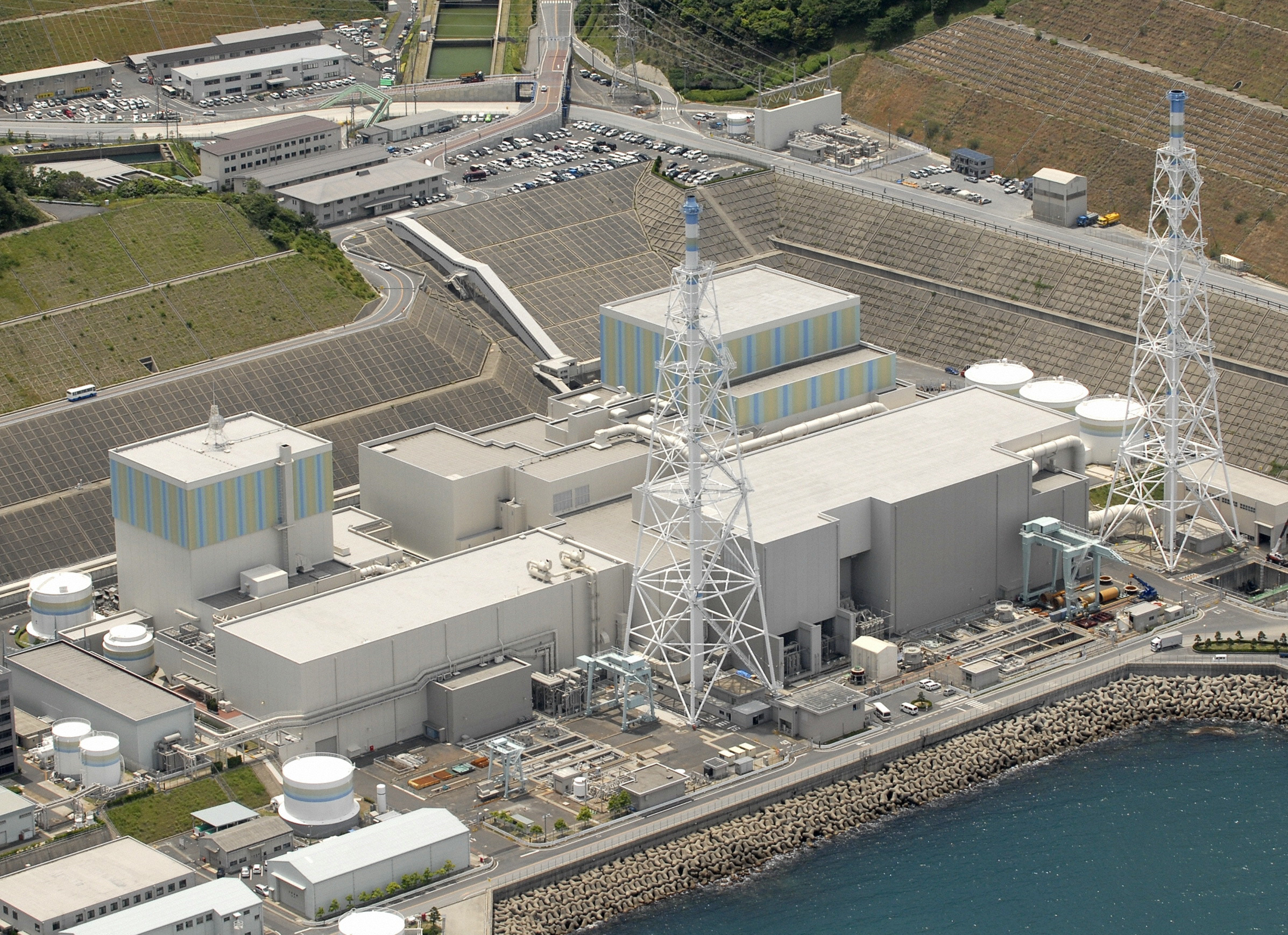
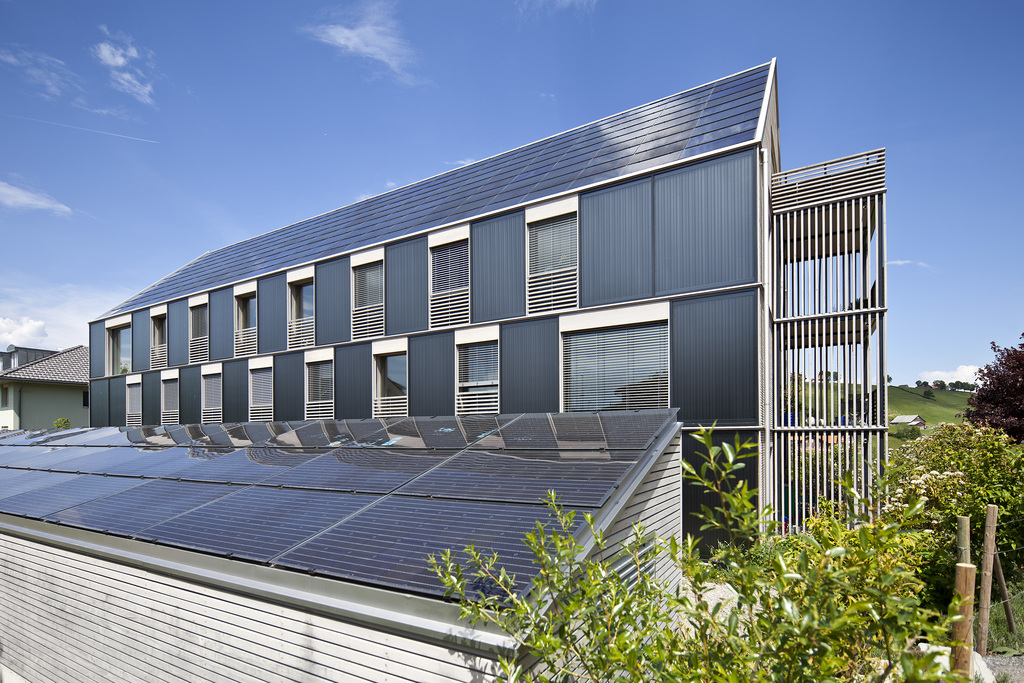
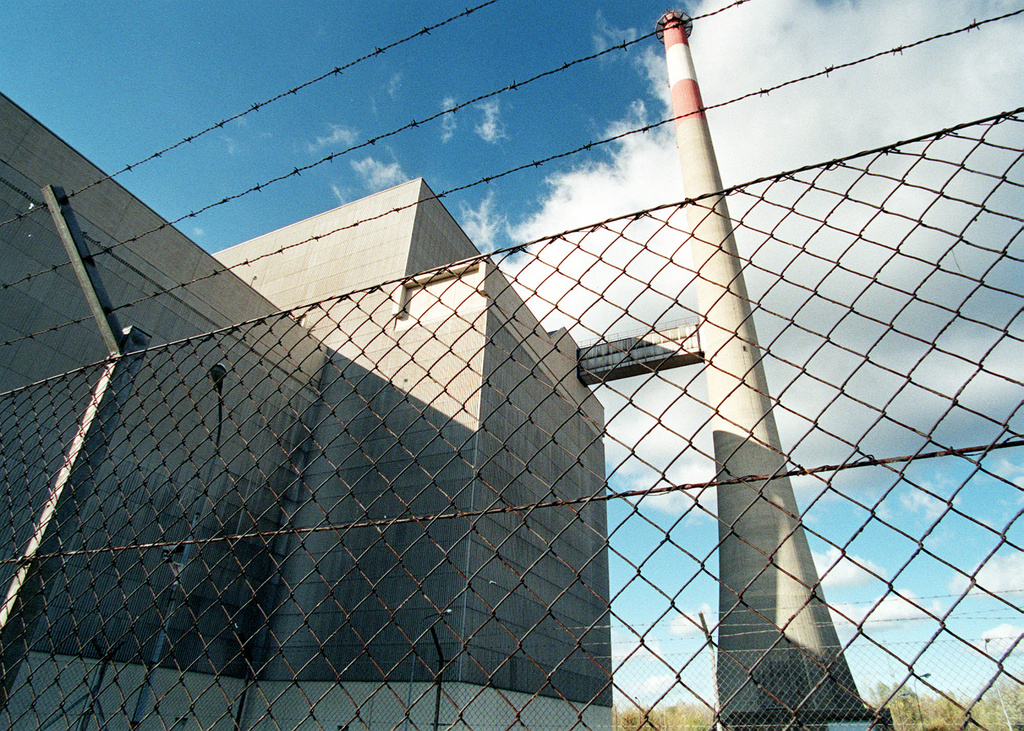
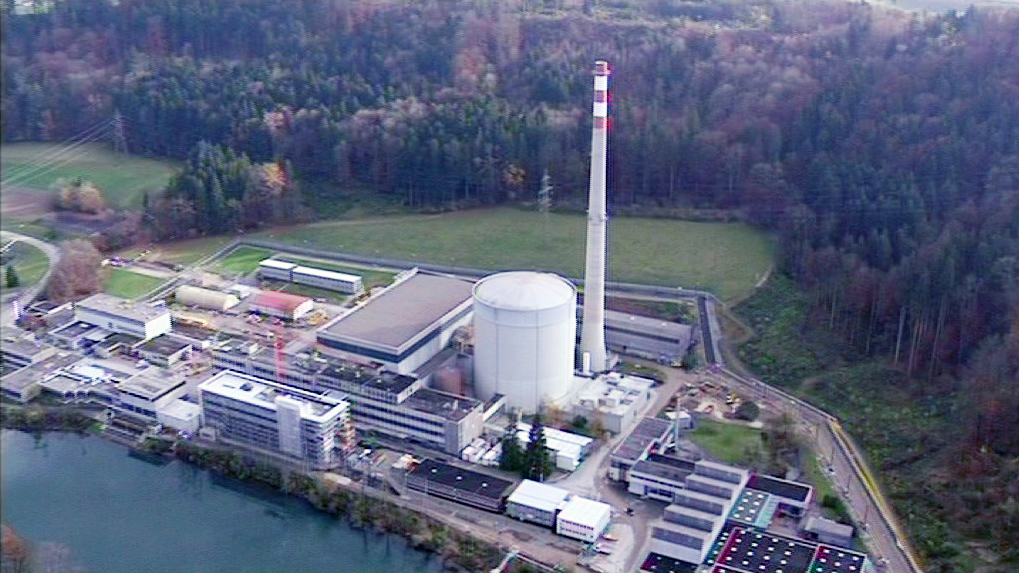
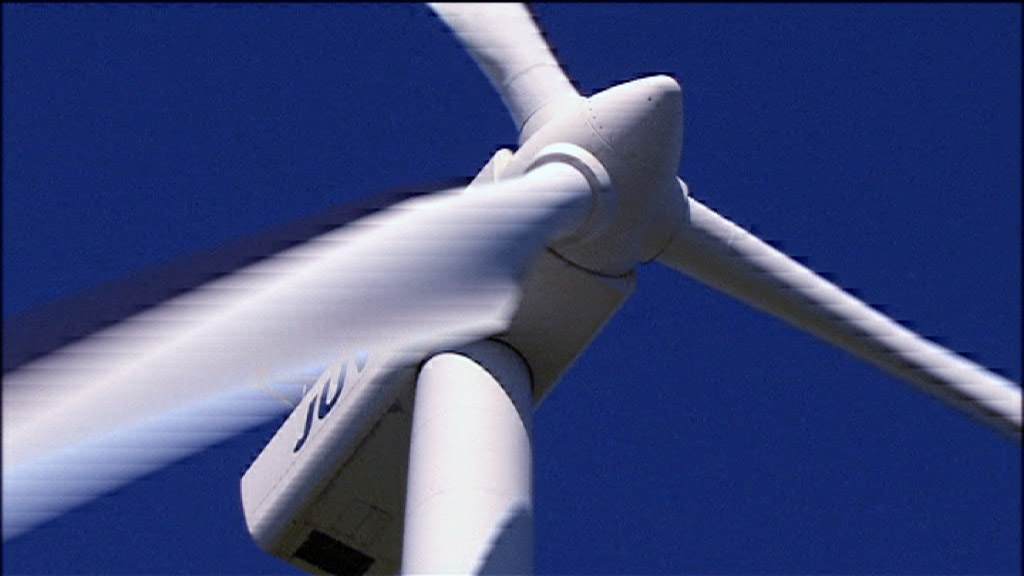
You can find an overview of ongoing debates with our journalists here. Please join us!
If you want to start a conversation about a topic raised in this article or want to report factual errors, email us at english@swissinfo.ch.